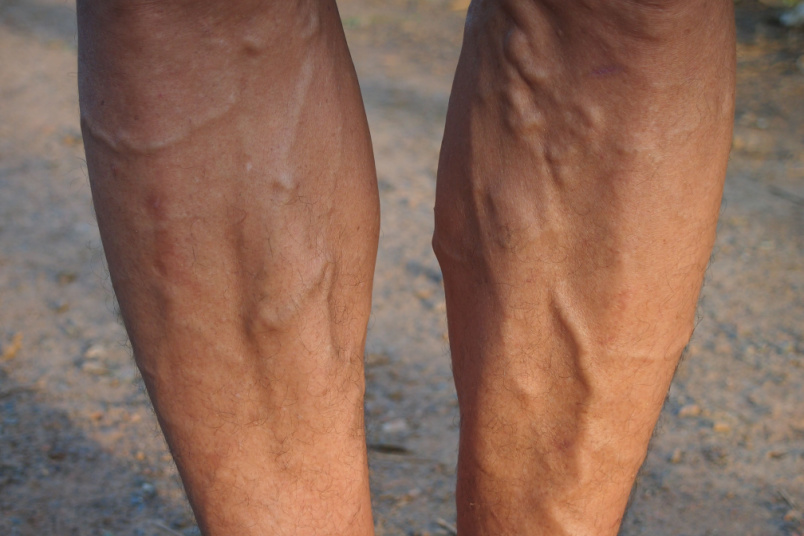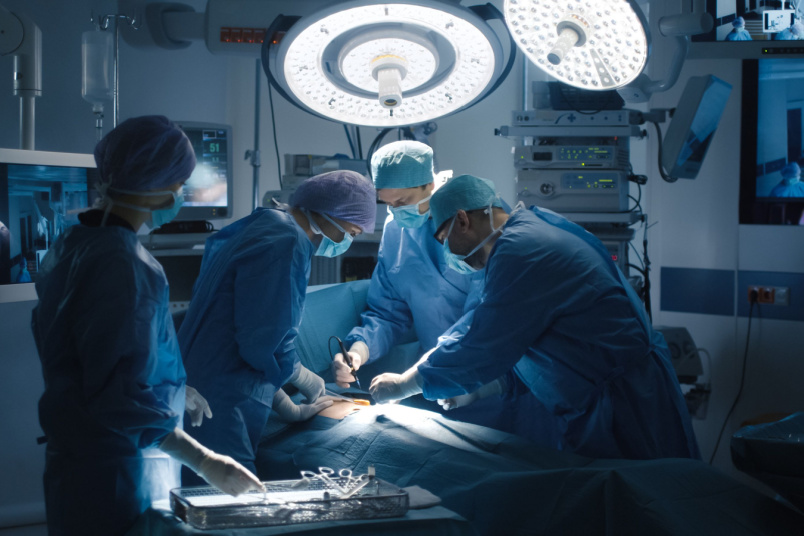Blog >Why You Need to Take a Varicocele Diagnosis Seriously
Why You Need to Take a Varicocele Diagnosis Seriously

A varicocele is nothing but the dilation of the veins that drains the testicle. Veins generally have valves that ensure that blood moves in the proper direction i.e. from various organs to the heart. However, when the valves in the testicular vein do not function properly, blood can collect in the scrotum under the influence of gravity, causing a varicocele. It usually occurs on the left side, although it can occur on both the sides. It is fairly uncommon for varicocele to occur on the right side alone.
Symptoms of Varicocele

Varicocele doesn’t exhibit any symptoms as such. However, the following changes may be noticeable:
- Dull ache or testicular pain in the scrotum, which often improves when you lie down
- Swelling in the testicles or scrotum
- Shrinkage of testicles (testicular atrophy)
- A tiny lump above the affected testicle.
Varicocele causes

Although the exact cause of a varicocele is still not known, it is most likely caused when a valve inside certain veins in the spermatic cord turn faulty. The spermatic cord is a collection of tissues that hold the testicles in place. The valve in these veins are two flap-like structures that act as a sort of “on/off” switch and direct the blood to move from the testicles to your heart. Owing to faulty valves, blood may build up inside the veins in your testicles, causing swelling.
You are more likely to develop varicocele if it runs in your family or if you suffer from varicose veins in your legs. Rarely, kidney tumors can result in the development of varicocele, which is usually painful.
“Grading system” for varicocele size

Grading system for varicocele is typically done during a physical exam of the scrotum and graded in the following way:
- Grade 0: Also called “subclinical varicocele.” This grade of varicocele can be seen on an ultrasound but not detectable physically.
- Grade I: Can be palpable on physical exam, when the patient is performing the Valsalva maneuver (“bearing down”).
- Grade II: This grade of varicocele is palpable even without Valsalva.
- Grade III: Final stage of grading in which the varicocele causes visible deformity of the scrotum.
Is a varicocele diagnosis serious?

Varicocele generally affects males during their teenage years (puberty), when the blood flow to your genitals increases. Often, the varicocele can prevent your testicle from growing properly. As such, varicoceles are not life-threatening but on rare occasions, they can be associated with dangerous conditions. A varicocele may cause erectile dysfunction. Men who suffer from varicocele may become infertile as they sometimes fail to achieve an erection. Varicocele can result in three main problems–impaired fertility, decreased testosterone production by the testes, and scrotal discomfort. Severely low testosterone levels could lead to complications such as metabolic syndrome, diabetes, and osteoporosis. Also, large varicoceles may increase your risk of other complications such as azoospermia (absence of sperms in your semen).
Varicocele treatment

Varicoceles often do not require any treatment. A varicocele should be treated primarily for two reasons:
(i) The varicocele is causing pain.
(ii) The varicocele is affecting the sperm quality and function, possibly leading to infertility.
Surgery is the best treatment option available to rectify a varicocele. It is recommended to undergo surgery under the following circumstances:
- A testicle shows delayed development
- Low sperm count or other sperm irregularities
- Chronic pain that is unmanageable even with medication
Surgery is performed with an aim to seal off the affected vein and allow the blood flow again into healthy veins. During the surgical procedure, the testicular vein is stitched and ligated (clipping the vein shut). There are two surgical procedures commonly used today:
- Microscopic varicocelectomy: In this procedure, the surgeon makes a tiny incision on the lower part of the groin. Now, with the help of a powerful microscope, the surgeon identifies and ligates numerous small veins. The entire procedure is complete in about 2 to 3 hours.
- Laparoscopic varicocelectomy: Using a video camera and surgical tools attached to tubes, the surgeon performs the procedure. Few very small incisions are made to the lower abdomen because the network of veins is less complicated above the groin and there are fewer veins to ligate. This procedure gets over within 30 to 40 minutes.
An alternative procedure to surgery that can be employed for treating a varicocele is called embolization. In this procedure, a tiny tube is inserted into your groin or neck. For this, you may be given a sedative. Using imaging on a monitor, the inserted tube is led to the treatment site in the groin. It is here that coils or a solution is released that causes scarring in order to create a blockage in the testicular veins. Embolization procedure lasts for about an hour. The advantage of this procedure is that recovery time is short and the person can resume normal activities within 1 to 2 days. This procedure causes very mild pain.
Varicocele may not pose a threat to the individual but often other factors such as size of the varicocele, patient’s fertility goals, and scrotal discomfort need to be considered. Also, an individualized approach to varicocele management takes into consideration, the age and fertility of the patient’s female partner. These can be deciding factors on whether or not to treat a varicocele.
AndroNeo @ NU Hospitals is a renowned institute that offers best varicocele treatment. If you are searching for a place for varicocele surgery in Bangalore, look no further. AndroNeo is the preferred choice for varicocele treatment in men, with its state-of-the-art facilities and up-to-date infrastructure. Visit AndroNeo @ NU Hospitals today!
Recent Post
- Penile Implant Surgery: A Permanent Solution to Erectile Dysfunction from the expert Andrologist in Bangalore
- Testosterone – why is it so important
- Bengaluru’s Leading Expert in Andrology (Male Fertility and Sexual Health) and Prosthetic Urology – Dr Pramod Krishnappa
- Varicocele – The Hidden Cause of Male Infertility
- No Sperm and Its Link to Genetic Factors: An Exploratory Guide
Related Post
Penile Implant Surgery: A Permanent Solution to Erectile Dysfunction from the expert Andrologist in Bangalore
Penile Implant Surgery: A Permanent Solution to Erectile Dysfunction from the expert Andrologist in Bangalore Living with erectile dysfunction (ED) is not only a physical
Testosterone – why is it so important
Testosterone – why is it so important Testosterone hormone is one of the most important hormones in our body, it is primarily a male hormone
Bengaluru’s Leading Expert in Andrology (Male Fertility and Sexual Health) and Prosthetic Urology – Dr Pramod Krishnappa
Bengaluru’s Leading Expert in Andrology (Male Fertility and Sexual Health) and Prosthetic Urology – Dr Pramod Krishnappa Overview Dr. Pramod Krishnappa is an exceptional Andrology
Varicocele – The Hidden Cause of Male Infertility
Varicocele_ The Hidden Cause of Male Infertility Infertility in men is a problem for millions of couples around the world, and one of the common
No Sperm and Its Link to Genetic Factors: An Exploratory Guide
No Sperm and Its Link to Genetic Factors: An Exploratory Guide Azoospermia, a leading cause of male infertility, occurs when a man’s ejaculate (semen) does
Penile Implant For Erectile Dysfunction: Preparation, During & After Surgery
Penile Implant For Erectile Dysfunction: Preparation, During & After Surgery A penile implant, also called a penile prosthesis, is a treatment method used to treat
